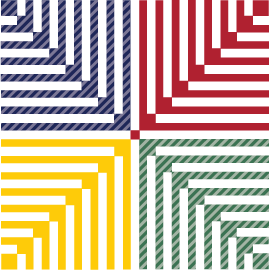Film synopsis: A team of young, brave Palestinian mechanical engineering students from Gaza succeed in building Gaza’s first Formula racing car despite failing to get crucial components from European suppliers due to the longstanding siege on the territory. Led by the relentless and visionary Dr Ghassan Abu-Orf, they face numerous seemingly impossible obstacles in their quest to take their invention to England to compete at the world-renowned Silverstone racing circuit.
Seasoned filmmaker Johan Eriksson, currently based in Jerusalem, describes what it was like to make this inspirational documentary.


BPFF: The Road to Silverstone shows such spirit and determination and hope. How were you able to accompany the team in Gaza to create a seamless story?
JE: The guys on the team were students at the college, the Khan Younis Technical College in Gaza, which is run by the United Nations Relief and Works Agency (UNRWA). And I was invited by them and by UNRWA to make a film about them and their journey. Usually when you make a documentary, you have to negotiate access and convince the subjects to let you film them, but in this case, it was almost the opposite. I didn’t have to work my way in or request access. They took me and kept me there!
We got on immediately. That’s why there is such an intimacy. I filmed and filmed. I must have had close to 40 hours of rushes when I came back. It was not that long a period, though. I filmed for a number of days, these frantic last days when they finalized the car and shared it with the media in Gaza. And then I joined them again when they managed to get out of Gaza for the competition. It was only about two weeks, but it was very intense because they never slept, they just worked, and there were always continuous dramas going on. I shot around the clock for this period. But then I spent months and months editing.
BPFF: So you were invited into the project. Was it initiated by UNRWA or by the project leader, Dr. Ghassan Abu-Orf?
JE: Initially someone from UNRWA contacted me. But it was immediately clear that it was really Dr. Abu-Orf’s project and vision – his initiative. And I think it is important to mention that no development aid money from the UN was spent on this. They managed to raise all the funds from private sponsors. And all the major players from the Palestinian economy chipped in, because everyone was excited. You can see it all in the film, in the stickers in the car. Like the Bank of Palestine and the mobile phone company, Jawwal. So they raised the money in the proper way, through private sponsorship, which I also think is quite an achievement.
BPFF: Tell us a little more about your background. What initially brought you to Palestine, and what work have you done since you arrived there?
JE: I am employed by UNRWA. I come from a film and TV background. I am originally from Finland, where I worked on TV as a foreign affairs reporter for many years. Then I moved to Sweden and did the same. Along the way, I started making longer factual programs, full-length documentaries and traveled to various parts of the world. Eventually, I got into the National Film and TV school in the UK, where I picked up a camera and starting filming on my own. I stayed on in the UK for a number of years working for Channel 4. It was actually pure coincidence that someone showed me the ad for this job [with UNRWA here in Jerusalem]. I went there, and they immediately appreciated my documentary background. That is not the only thing I do here, but I have always been able in parallel to pursue these longer stories, such as Hoda’s Story [which screened at BPFF2011 – Ed].
BPFF: What was it that made Dr. Abu-Orf think that this particular group of students could make this succeed? Did he ever try it after, or was it just something about that particular group?
JE: He tried a number of times, but it didn’t quite take off. But this group was persistent enough to push through. And I think what really helped them was that the organizers at the Formula student event at Silverstone heard about it through an article in the Daily Telegraph in the UK, and then they contacted them and invited them to come.
BPFF: Can you talk to us more about Formula Student? What does it have to do with Forumula One?
JE: Formula Student is a really high-stakes event because it’s run by Formula One. It has all the big shots in the Formula One racing franchise. And they have all of these famous judges who are able to hand pick the best young engineering talent coming out of the world’s finest universities of automotive engineering. So the team from Gaza was completely out of their league. But good for these organizers, because they recognized the bravery and perseverance of these kids.
There are many things to be said about Formula One as a sport. But at the heart of it, apart from the commercial side, it’s like an engineering feast. And in this case, it was engineers and mechanics appreciating the predicament of other fellow mechanics, and feeling that these students [in Gaza] needed encouragement. And that’s the beauty of it, I think.
BPFF: How was the Gaza team received at Formula Student? What was the reaction of other competitors?
JE: This event is absolutely cutthroat. It’s young people looking for the break of their lives to get into racing. So there’s not a lot of love lost between the competitors in that event. But everybody just embraced the Gaza team. And they got so much respect. It was beautiful – absolutely beautiful.
And then it becomes such a strong metaphor for the blockade of Gaza. I mean, it’s such an outlandish thing to build a racecar and bring it out through Rafah [Crossing] and the Sinai Desert, and then fly it to England.
But it was beautiful. In succeeding in doing that, you show everything that’s wrong with the siege – how it physically and mentally isolates people and puts them down and stops them from fulfilling their potential, as well as building, trading, and interacting with the world as they should be able to do.
BPFF: How were the students greeted when they returned to Gaza, and how did this experience at Silverstone affect their lives?
JE: They were hailed like the astronauts were in America in the 1960s. These are our heroes: bravery of men and mastery of technology. For them, it was like a moonwalk too, and of course they attributed so much hope to it, because they gave it their everything. Then, they came back to the grim reality of Gaza. And since then, they have struggled.
BPFF: Any final thoughts?
JE: What the students created is really rare and special. You can stay away from all of these tedious politics that this area is so entangled in. And for me, as a storyteller, it was fabulous. I kept pinching myself when it happened. I got to tell everything I wanted to say about Palestinians from Gaza through this remarkable story.
–Kate Rouhana for BPFF
The Road to Silverstone screens on Saturday, October 25, 2014 3 pm, at the Museum of Fine Arts, Boston. View full schedule and buy tickets here.

